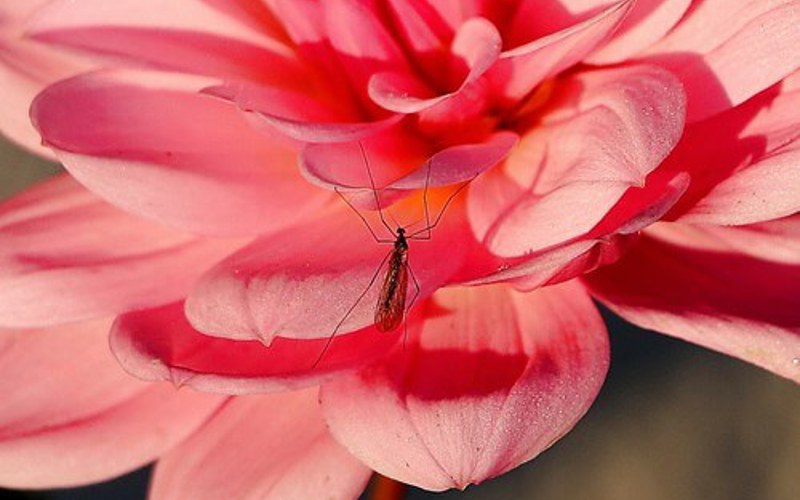GC Reveals Why Orchids Could be the Future of Mosquito Repellents
Using gas chromatography (GC), a research team from the University of Washington, in the US, has recently discovered a chemical combination that draws mosquitoes to a specific specie of orchids, Platanthera obtusata, for pollination. As the researchers note in their findings, the orchid produces just the right combo of compounds that attract mosquitoes through their sense of smell.
When analyzed in isolation, these compounds have certain properties which are repressive or attractive to the mosquito brain. However, when combined together in the same proportion that can be found in the orchid, they can stimulate the mosquitoes’ brain as much as warm-blooded host.
Thanks to GC analysis, the group of researchers were able to identify the chemicals present in the scent of the orchid species. In contrast to its close relatives, the Platanthera obtusata type of orchid contained a high level of a chemical compound called nonanal, and less amounts of another chemical, lilac aldehyde.
The scientists noted the electrical activity these two chemicals aroused in mosquitoes native to orchid’s habitat, the Northern Hemisphere, as well as in mosquitoes from different regions. The team found that nonanal and lilac aldehyde stimulated the antennae of both native and non-native mosquitoes. The researchers also found that decreasing the amounts of lilac aldehyde made the mosquitoes lose interest, whilst too much of the compound at times repelled them by its scent.
As part of their study, the researchers also observed closely the different parts of a mosquitoe’s brain and noted the areas which were activated by nonanal and lilac aldehyde. Jeffrey Riffell, professor biology at the University of Washington, said:
“Mosquitoes are processing the ratio of chemicals, not just the presence or absence of them. This isn’t just important for flower discrimination — it’s also important for how mosquitoes discern between you and I. Human scent is very complex, and what is probably important for attracting or repelling mosquitoes is the ratio of particular chemicals. We know that some people get bit more than others, and maybe a difference in ratio explains why.”
Having such knowledge about the life of mosquitoes and their flower preferences can bear implications for mosquito repellent suppliers. For instance, such data acquired from the research can help advise in the development of less harmful and more effective types of repellents, so we can safely keep female mosquitoes off our skin!
“Mosquitoes are processing the ratio of chemicals, not just the presence or absence of them. This isn’t just important for flower discrimination — it’s also important for how mosquitoes discern between you and I. Human scent is very complex, and what is probably important for attracting or repelling mosquitoes is the ratio of particular chemicals. We know that some people get bit more than others, and maybe a difference in ratio explains why.”
Having such knowledge about the life of mosquitoes and their flower preferences can bear implications for mosquito repellent suppliers. For instance, such data acquired from the research can help advise in the development of less harmful and more effective types of repellents, so we can safely keep female mosquitoes off our skin!
Using Hydrogen Generator for GC
More and more labs are moving away from the traditional methods of bulk hydrogen gas supply for GC analysis. Offering a safer and more reliable alternative to pressurized gas cylinders, with a hydrogen generator labs can take control of their own gas supply by producing their own hydrogen gas, on-site and on-demand.
Peak Scientific’s Precision Hydrogen generator comes in two variants: standard and trace. The standard model, available in 100cc, 200cc and 300cc, is designed for applications requiring hydrogen gas as a fuel gas, such as FID and FPD. For carrier gas, Peak offers the trace model, delivering flow rates up to 1200cc/min. Capable of supplying multiple detectors and GC or GC-MS instruments, Precision Hydrogen provides labs with a consistent and dependable gas supply.
Sources:
The olfactory basis of orchid pollination by mosquitoes
Mosquitoes are drawn to flowers as much as people - and now scientists know why
